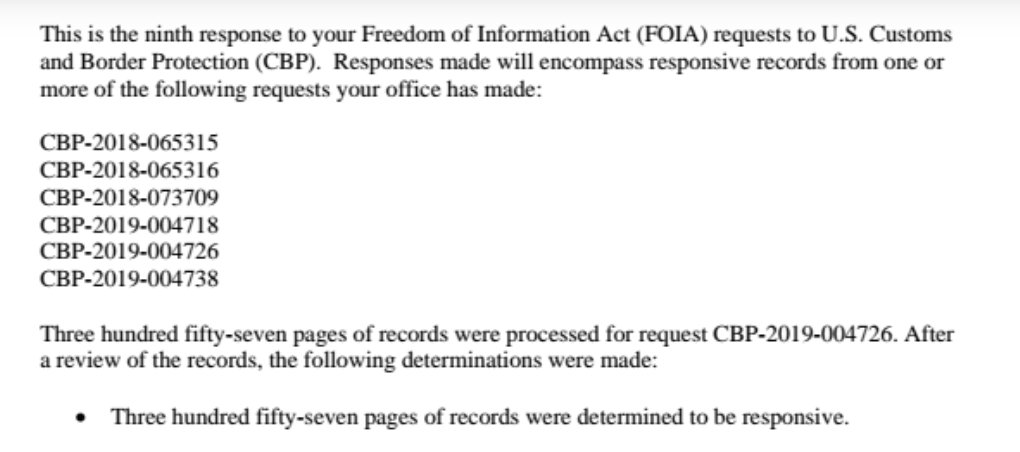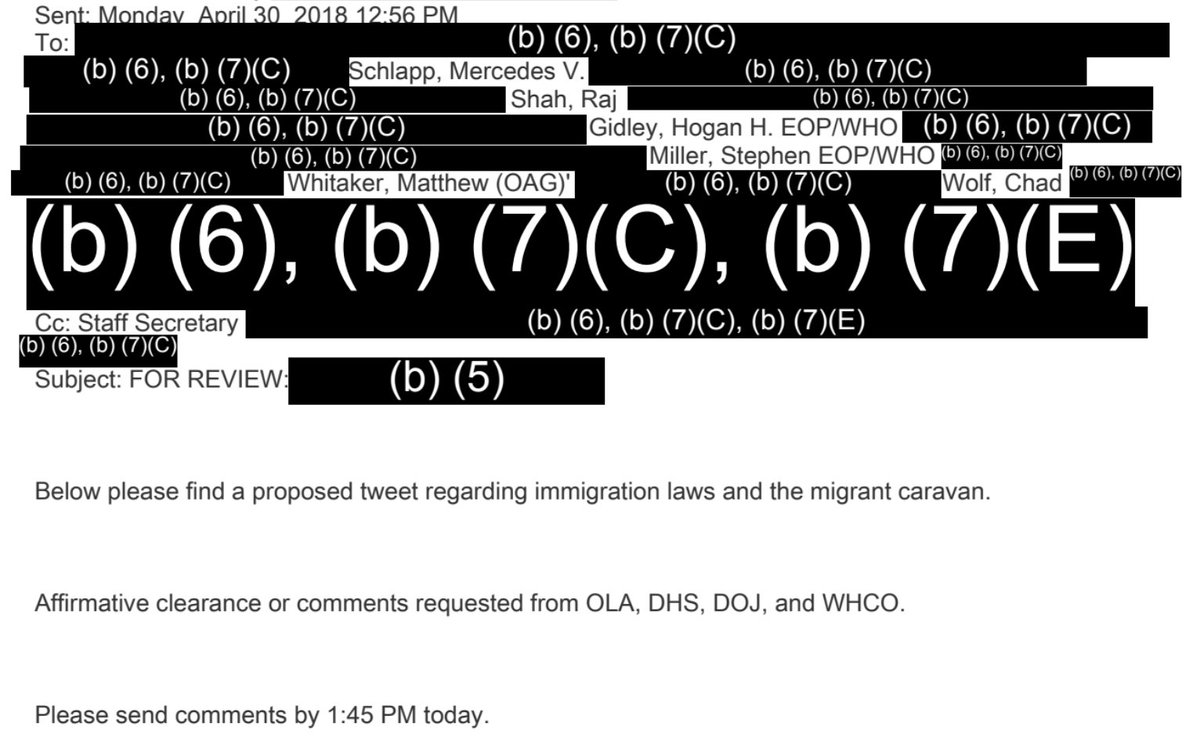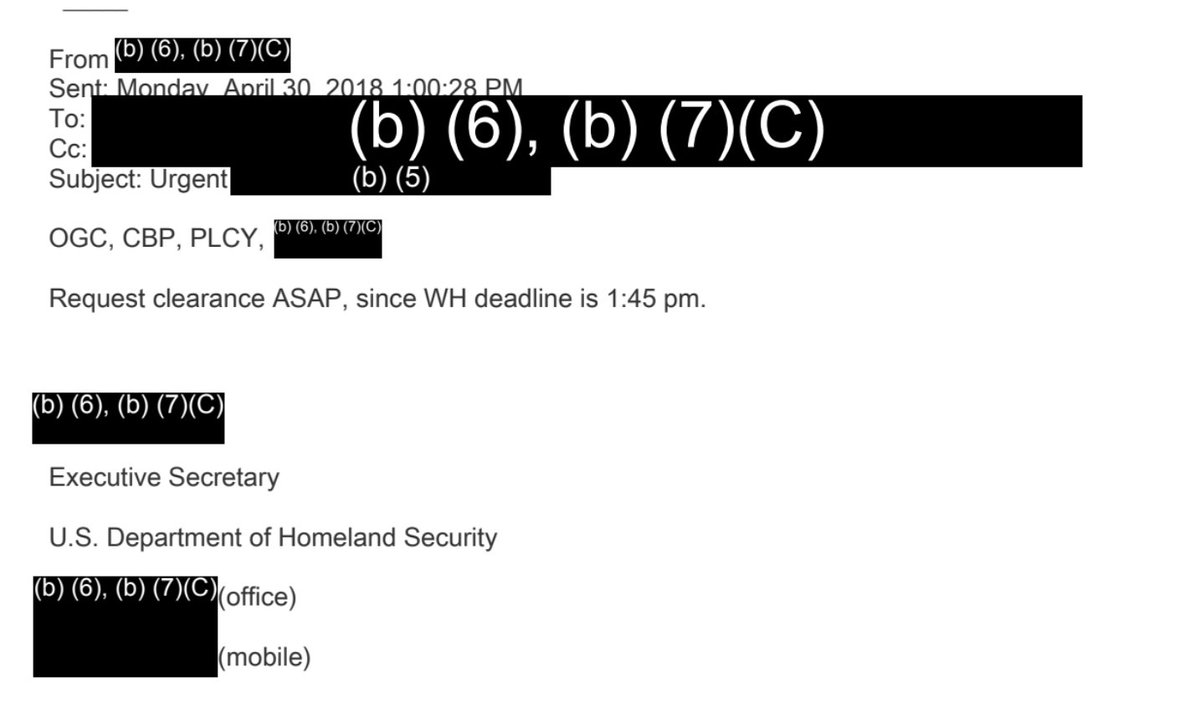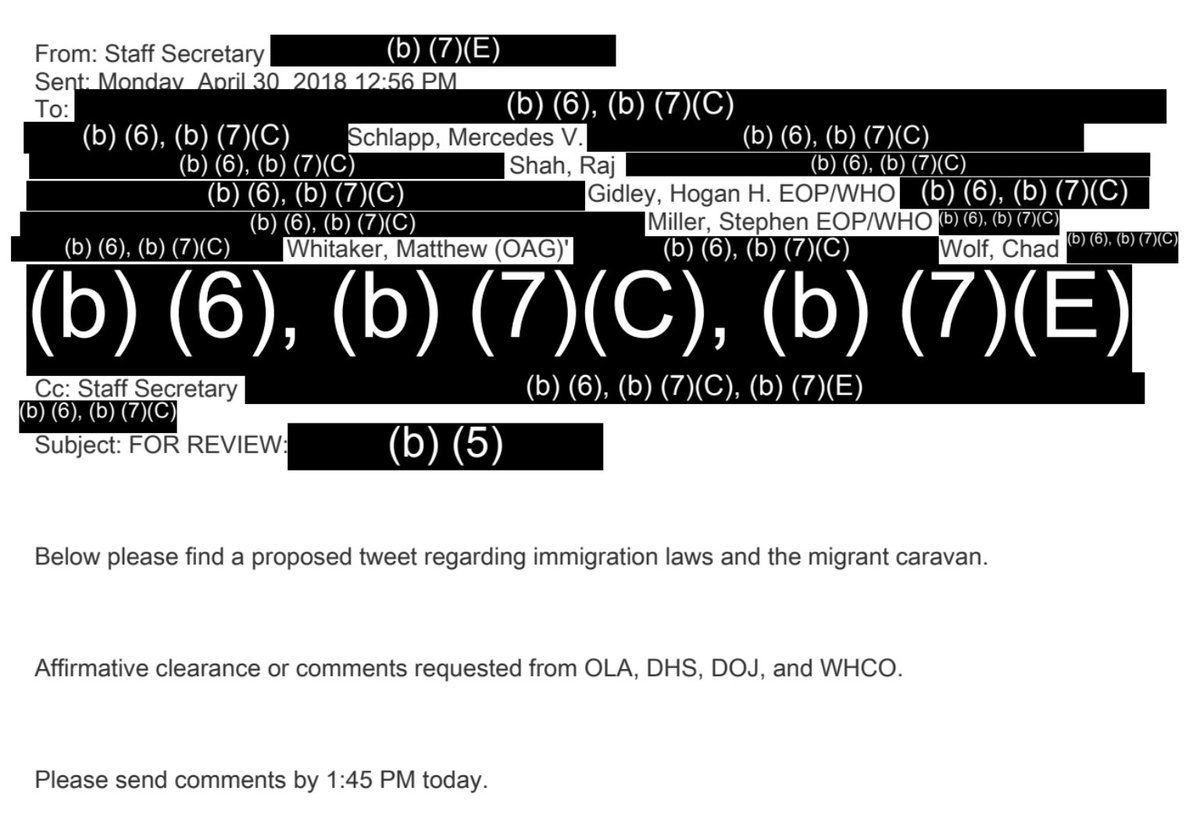
The Trump administration has made it harder for people fleeing violence and persecution to obtain asylum in the United States.
We obtained new documents showing an early version of the controversial Migrant Protection Protocols policy.
americanoversight.org/document/cbp-r…
We obtained new documents showing an early version of the controversial Migrant Protection Protocols policy.
americanoversight.org/document/cbp-r…

Under MPP, which DHS announced in January 2019 and the Supreme Court ruled could continue in March 2020, asylum-seekers are forced to wait in Mexico while their cases proceed, forcing them to stay in dangerous locations, with limited access to attorneys & case info.
In a February 2017 presentation from the “U.S. Customs and Border Protections Migration Crisis Action Team,” a slide showed that CBP was planning to develop guidance for implementation of 235 (b)(2)(c).
235 (b)(2)(c) provides that undocumented immigrants arriving by land from a contiguous territory generally may be returned, as a matter of enforcement discretion, to the territory from which they are arriving pending a removal proceeding.
In addition, the presentation noted that DHS would collaborate with DOJ to establish "port courts" and "soft-sided" expansion plans, which most likely refer to the "tent courts" that have become infamous for their poor conditions. 

Previously, we obtained records showing how while devising MPP, the administration scrapped a question asking migrants whether they feared being returned to Mexico, requiring them to bring up such a fear on their own.
buzzfeednews.com/article/hameda…
buzzfeednews.com/article/hameda…
Learn more about our ongoing investigation into MPP and other barriers to receiving asylum implemented by the Trump administration here:
americanoversight.org/investigation/…
americanoversight.org/investigation/…
• • •
Missing some Tweet in this thread? You can try to
force a refresh









